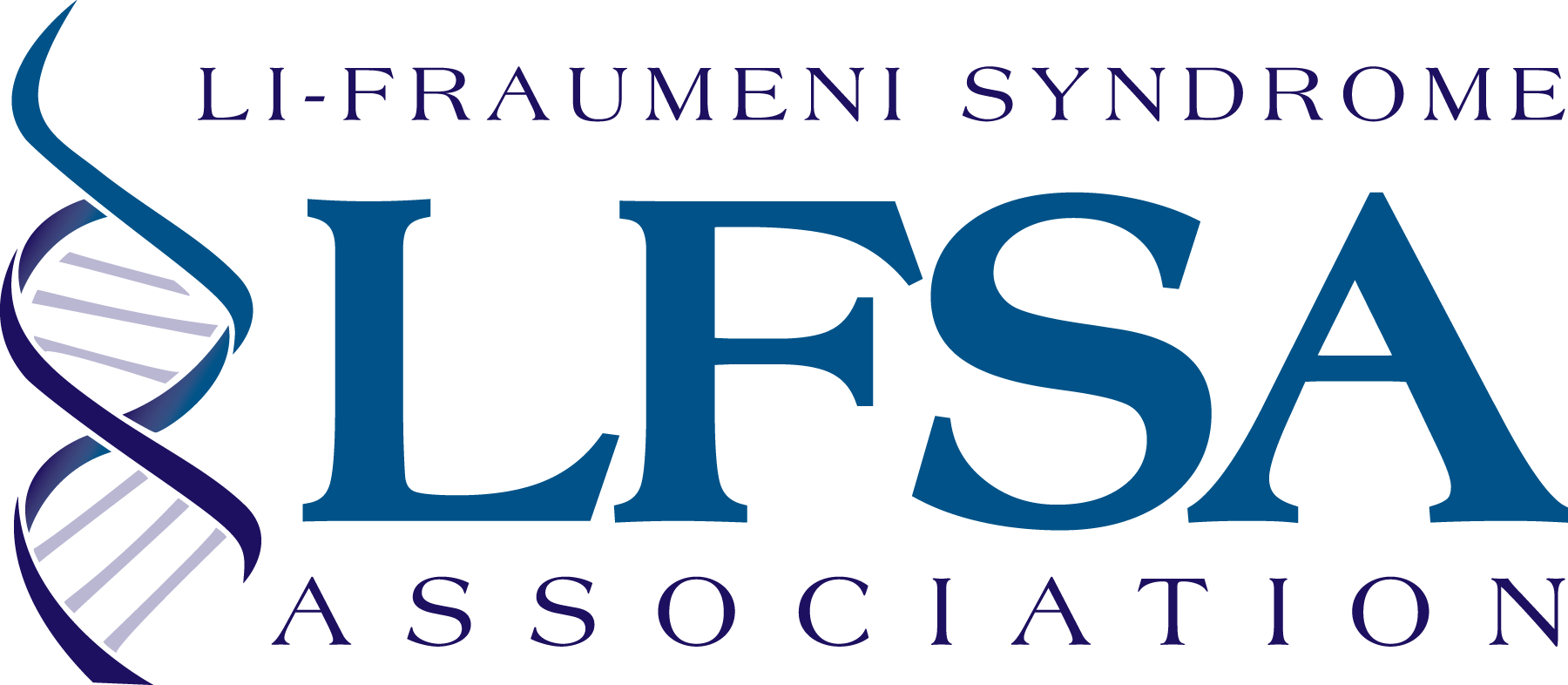At this time, there is no standard treatment or cure for LFS or a germline TP53 gene variant. With some exceptions, cancers in people with LFS are treated the same as for cancers in other patients, but research continues on how to best manage those cancers involved in LFS.
Research has indicated that those individuals with LFS appear to be an elevated risk for radiation-induced cancers, so the use of radiotherapy should be approached with caution. For this reason, computed tomography (CT) scans and other diagnostic techniques involving ionizing radiation should be limited. However, radiation therapy should not be avoided if the benefits outweigh the risks.
Since those living with LFS are susceptible to the development of a number of different cancers, individuals should ensure that they incorporate simple measures into a healthy lifestyle, such as sun protection and the avoidance of tobacco products.
It has been widely accepted that early cancer detection can greatly increase overall survival, and those diagnosed with LFS should seek to adhere to preventive screening. An expert panel of LFS researchers, oncologists, and genetic counselors has published surveillance recommendations that utilize whole body MRI screening for patients with LFS. The below updated guidelines were developed by the American Association for Cancer Research (AACR) Childhood Predisposition Workshop held in 2023 which may still differ slightly from other recommendations at this time, such as with the NCCN and other international protocols.
These surveillance recommendations should be offered as soon as the diagnosis of LFS is established.
What hasn’t changed:
- People with LFS need to have regular physical exams throughout their lives and should seek medical attention if they develop any concerning symptoms.
- People with LFS need to have specialized cancer screening tests throughout their lives, starting in infancy (or whenever the diagnosis of LFS is made).
- The “Toronto Protocol”, which includes whole-body MRI and other screening tests, is still the foundation of screening for most people with LFS.
- People with LFS who have cancer and are treated with radiation therapy and certain type of chemotherapy may have increased risks for developing another cancer.
What has changed:
- While whole-body MRI is still an important screening tool, the new guidelines stress the importance of targeted screening of specific organs based on the person’s age and other factors.
- For cancer patients with LFS, there is more emphasis on tailoring or modifying the radiation therapy and chemotherapy to maximize the treatment benefits and reduce the risks of another cancer.
- Cancer patients with LFS should continue to be screened for other types of cancer both during and after their treatment. For instance, cancer patients who had total body or abdominal radiation may need to start having colonoscopy exams.
Also discussed in the new guidelines:
- It may be possible to modify the cancer screening recommendations based on the person’s specific TP53 result; more research is needed in this area.
- Lifelong screening can take an emotional and physical toll on individuals and families with LFS and supportive services should be offered.
- Liquid biopsy is a new cancer detection strategy that looks promising and is being investigated. A liquid biopsy is a blood test that looks for circulating tumor cells.
- For people with LFS who are transgender, nonbinary, or gender diverse and take hormonal therapy, there may be special issues to consider.
In brief, the screening recommendations involve:
Children (birth to age 18 years)
- General assessment
- Complete physical exam every 3-4 months
- Prompt assessment with primary care physician for any medical concerns
- Adrenocortical carcinoma
- Ultrasound of abdomen and pelvis every 3-4 months
- In case of unsatisfactory ultrasound, blood tests every 3-4 months
- Brain tumor
- Annual brain MRI (first MRI with contrast – thereafter without contrast if previous MRI normal with and no new abnormality)
- Leukemia CBC with differential from birth every 3-4 months
- Soft tissue and bone sarcoma
- Annual whole-body MRI (without contrast)
- Melanoma
- Annual dermatological examination
Adults
- General assessment
- Complete physical exam every 6 months
- Prompt assessment with primary care physician for any medical concerns
- Breast cancer
- Breast awareness (age 18 years and forward)
- Clinical breast exam twice a year (age 20 years and forward)
- Annual breast MRI screening (ages 20-75) (may consider alternating breast MRI and mammogram
- Annual breast mammogram (30-75)
- Consider risk-reducing bilateral mastectomy
- Prostate cancer
- Annual serum prostate specific antigen (PSA) beginning age 35
- Brain tumor (Birth and forward)
- Annual brain MRI (first MRI with contrast – thereafter without contrast if previous MRI normal)
- Soft tissue and bone sarcoma (age 18 years and forward)
- Annual whole-body MRI (without contrast)
- Adrenocortical carcinoma (age 18 and forward)
- Ultrasound of abdomen and pelvis every 6 months (blood biochemistry if unsatisfactory ultrasound quality)
- Gastrointestinal cancer (age 25 years and forward)
- Upper endoscopy and colonoscopy every 2-5 years (earlier screening recommended for patients who have received total body or abdominal therapeutic radiation therapy)
- Melanoma (Birth and forward)
- Annual dermatologic examination
- Leukemia (Birth and forward)
- CBC with differential every 3-4 months
Also noted, for families in which breast cancer has already made an appearance at or around age 20 – awareness and screening can be considered 5 to 10 years before the earliest age of onset known. The same is recommended for gastrointestinal cancers – consider screening 5 years before the earliest known onset of a gastrointestinal cancer in the family.
Reference: Coming soon! 2025 Updated Screening Recommendations for Li-Fraumeni (AACR’s Clinical Cancer Research, April 3, 2025)
Please also reference our “quick” LFS Fact Sheet for Medical Providers.
Investigational Therapies
Numerous strategies using small molecule drugs to reactivate or modify dysfunctional TP53 protein are being actively studied, but not yet in clinical trials with LFS patients.
Information on current clinical trials is posted on the Internet at www.clinicaltrials.gov. All studies receiving U.S. government funding, and some supported by private industry, are posted on this government website.

